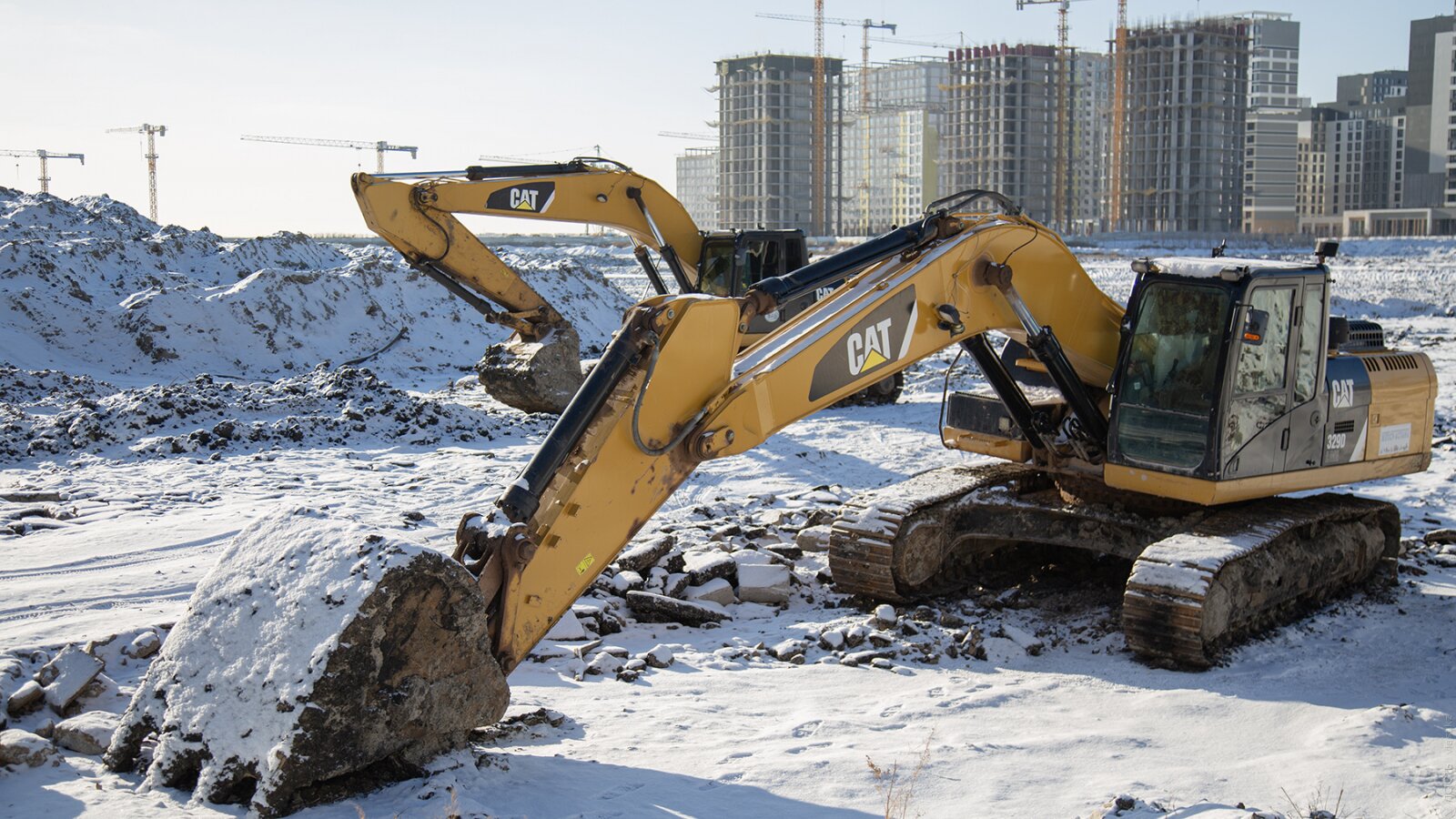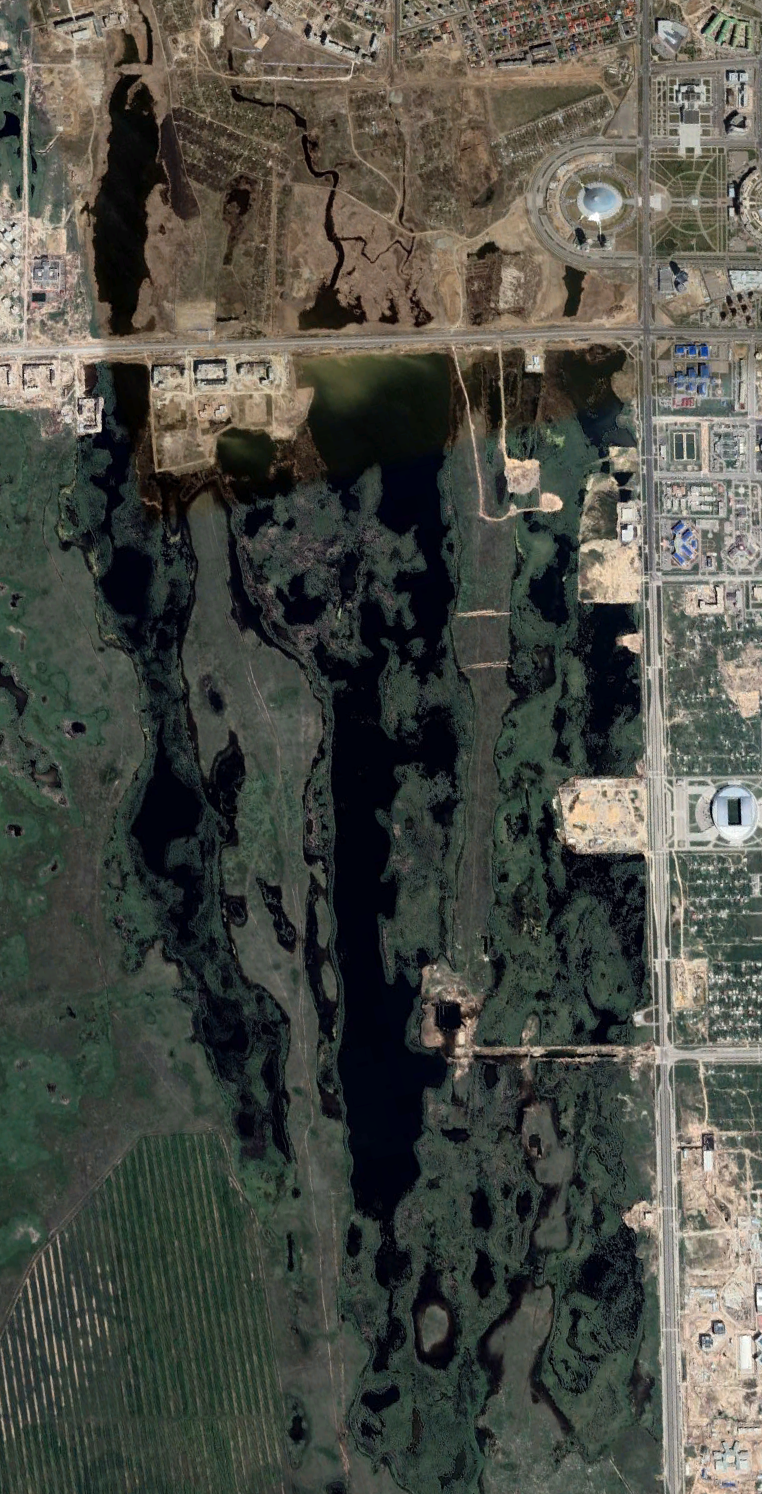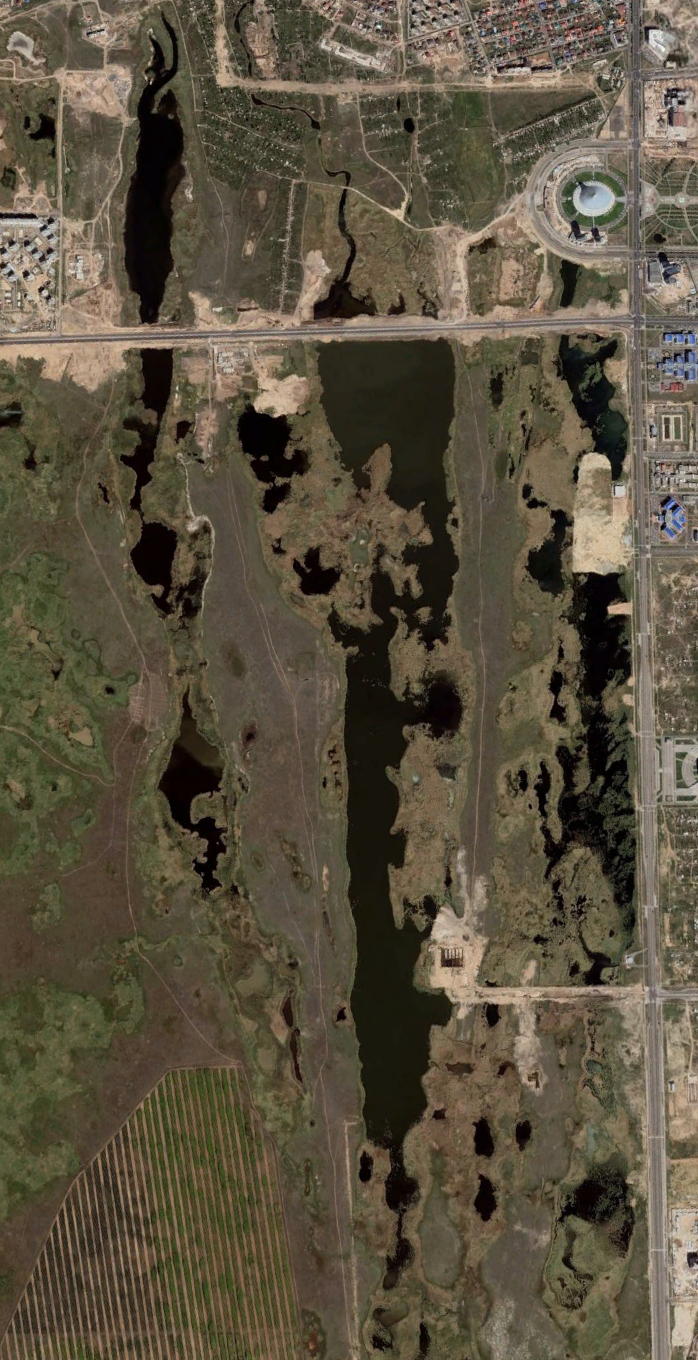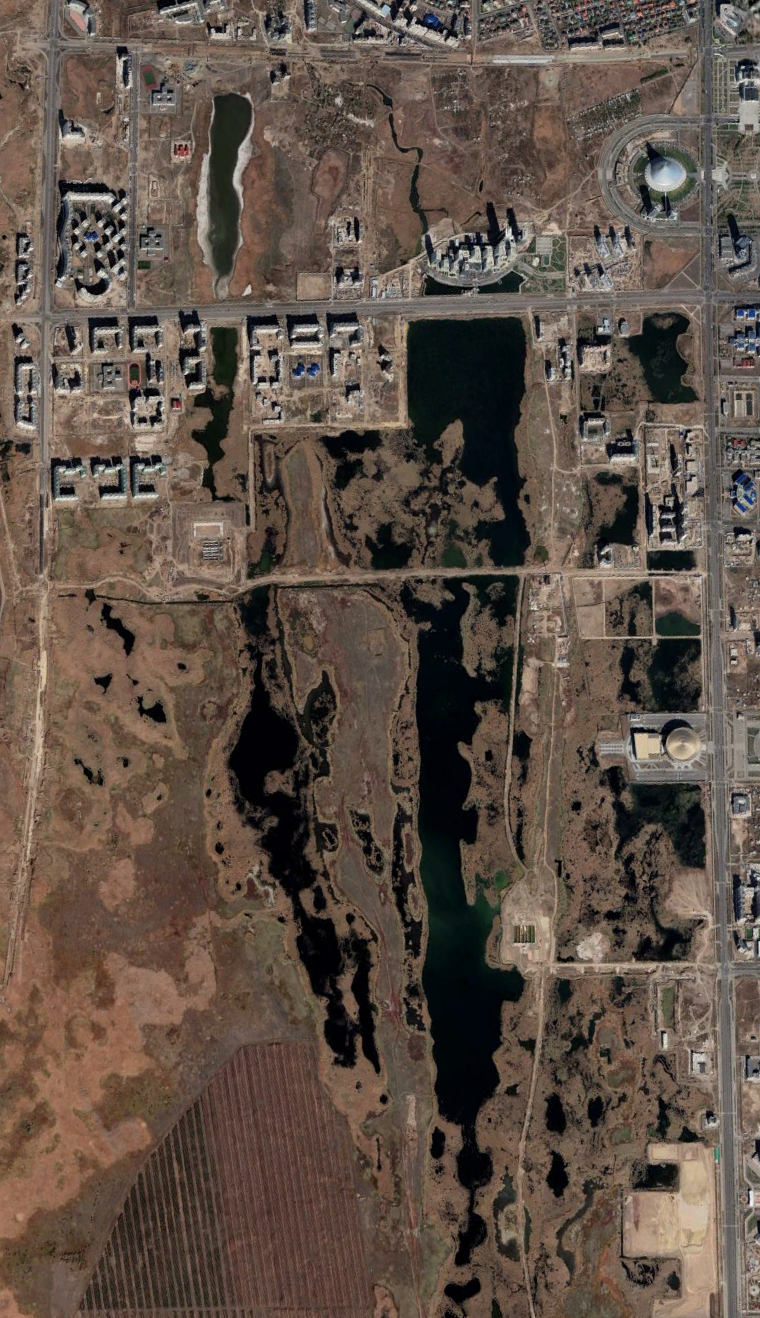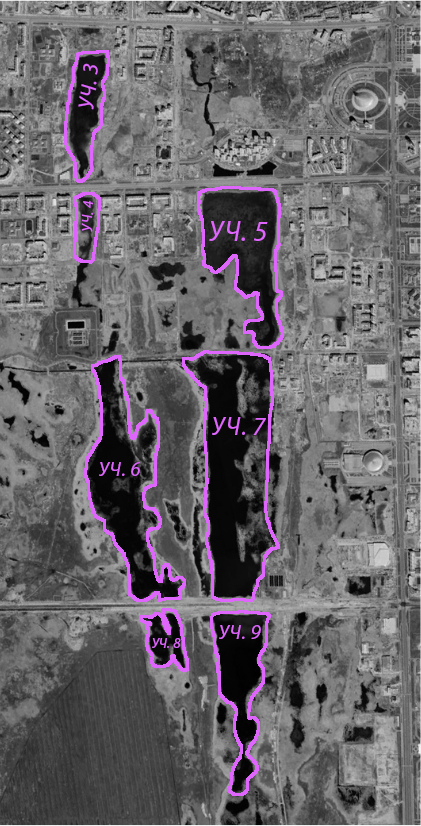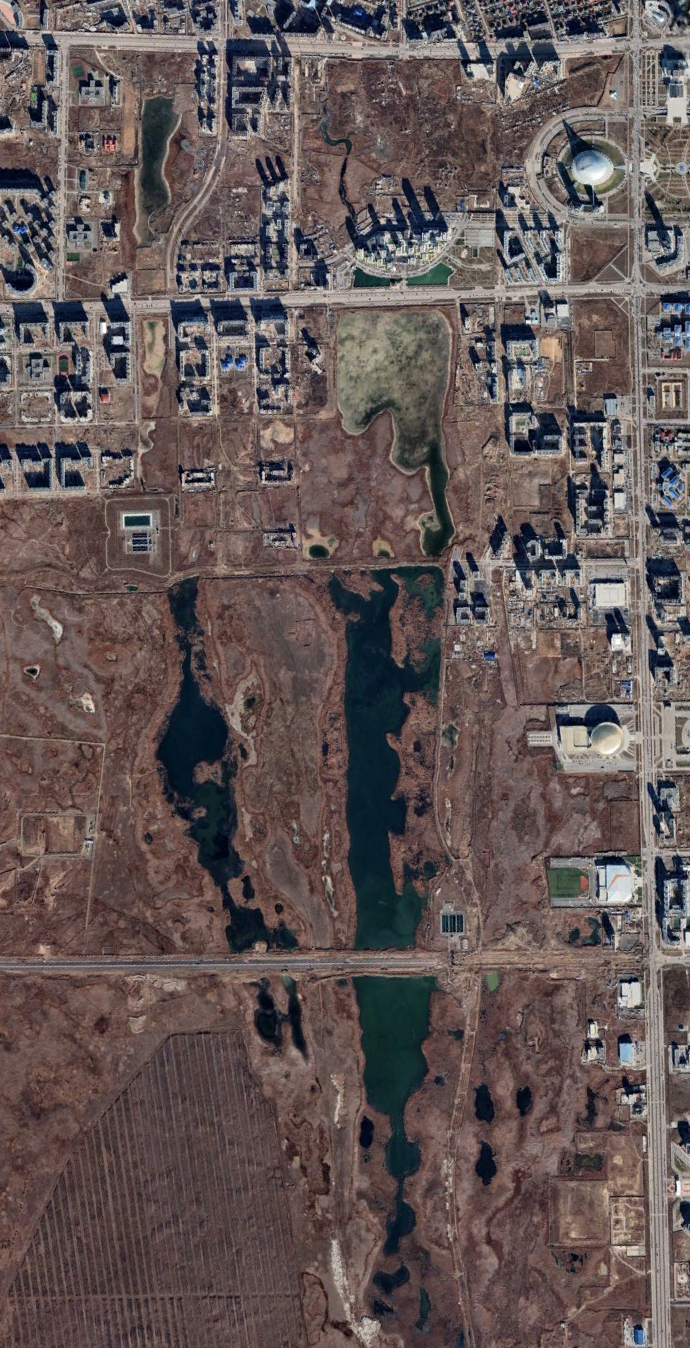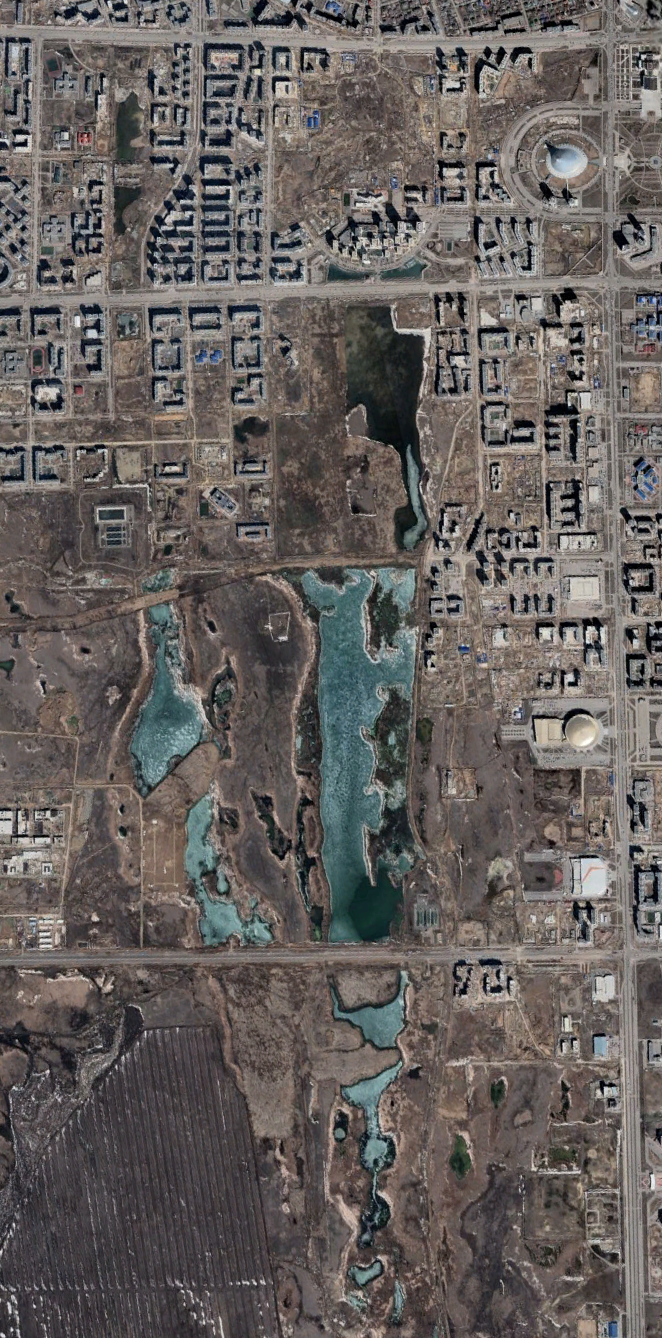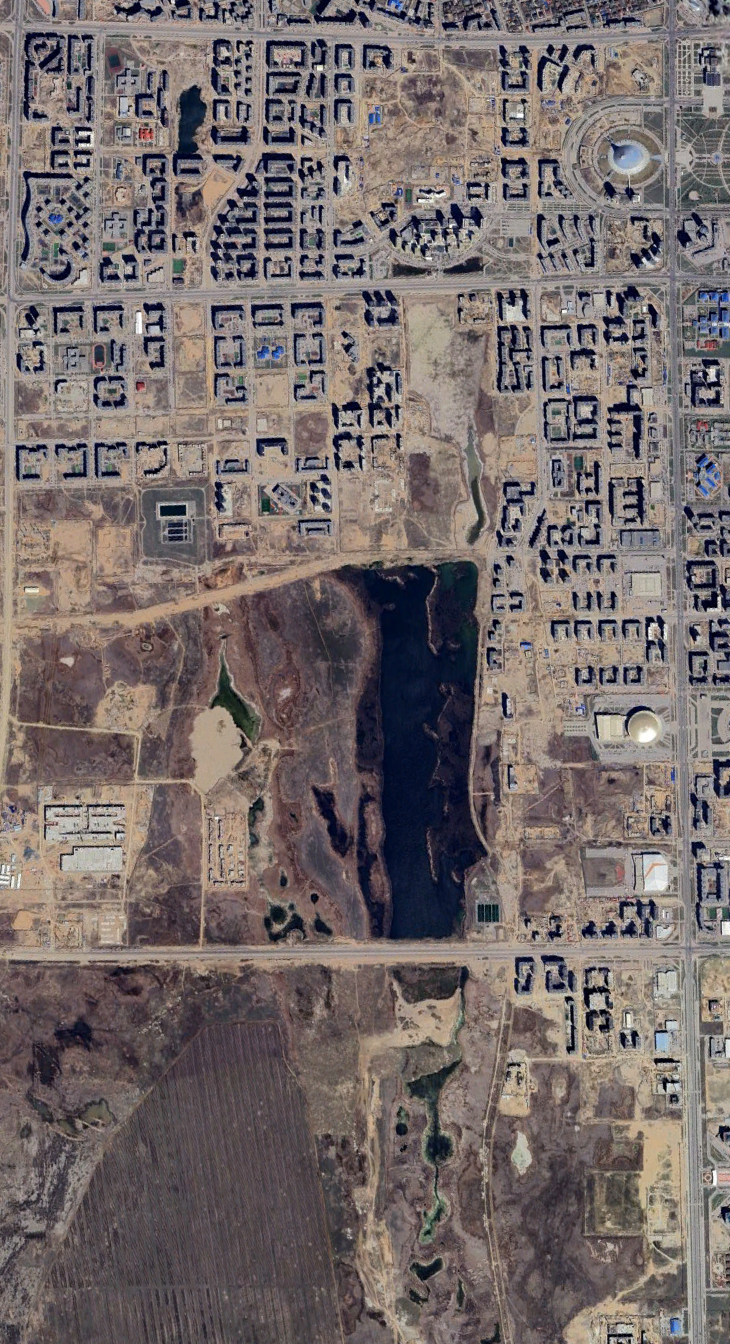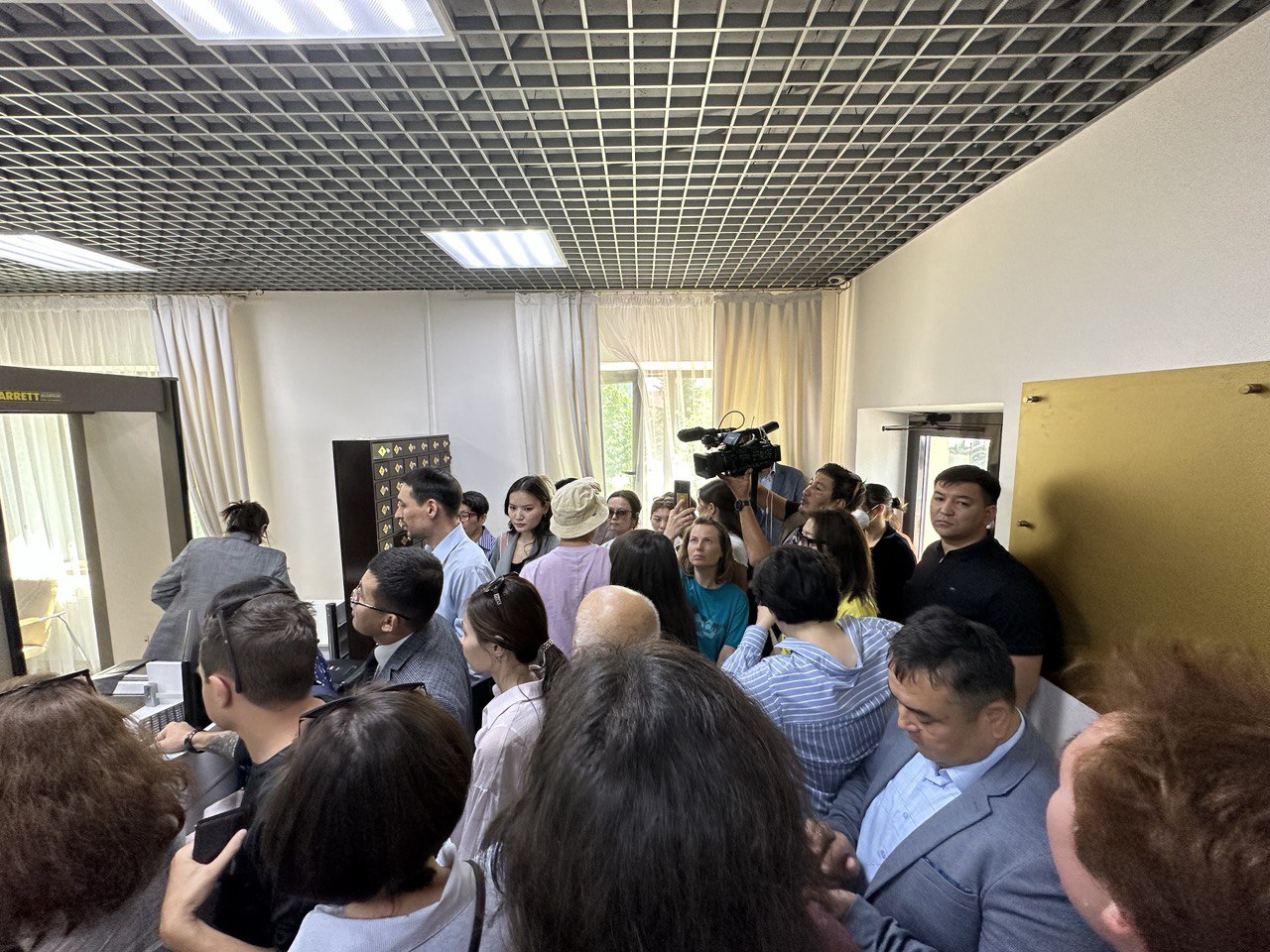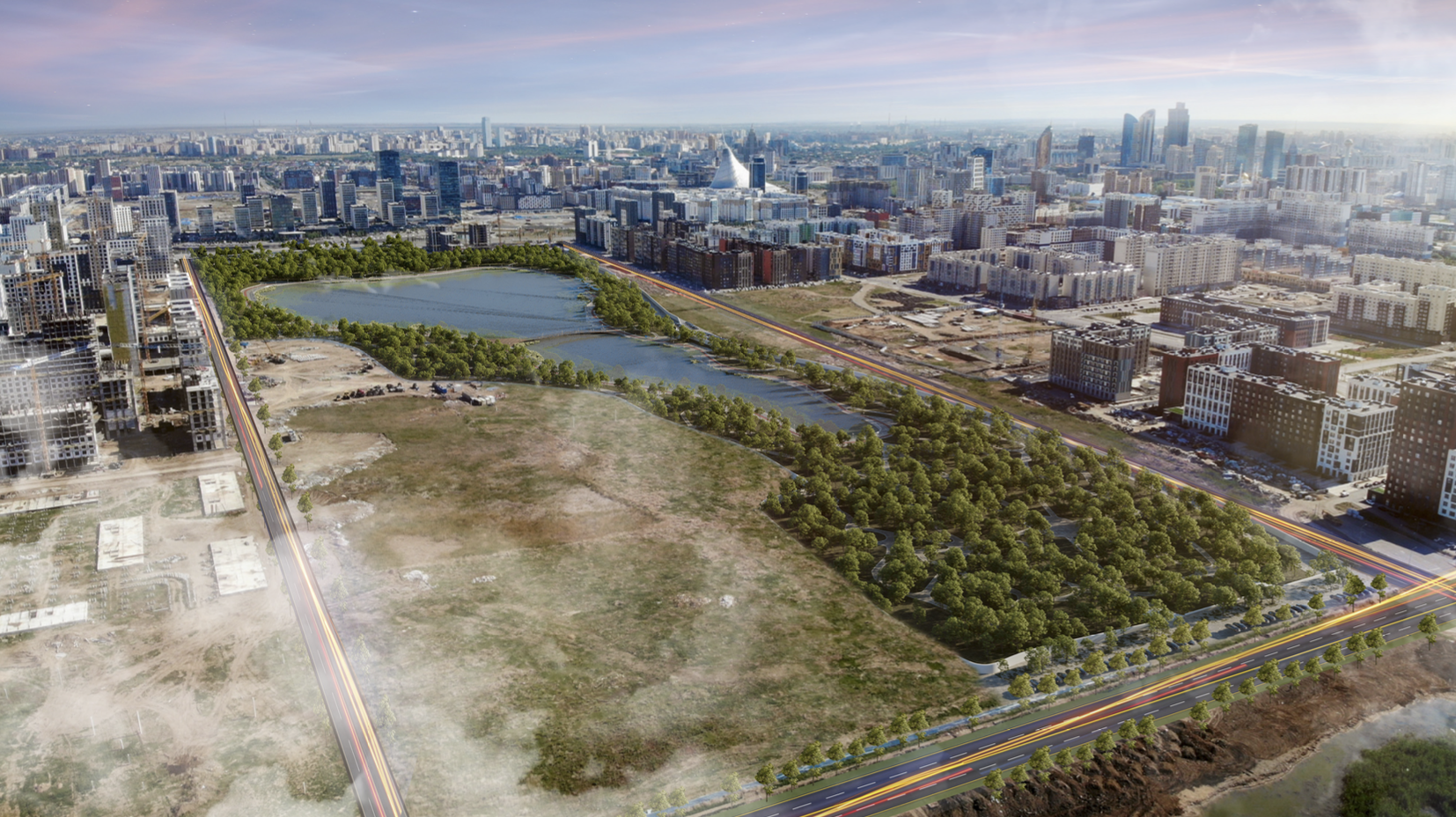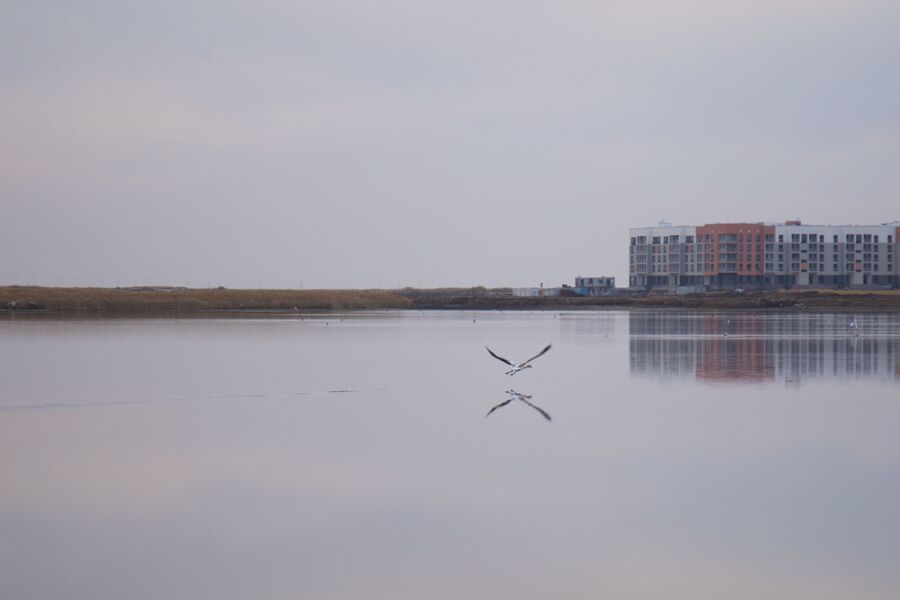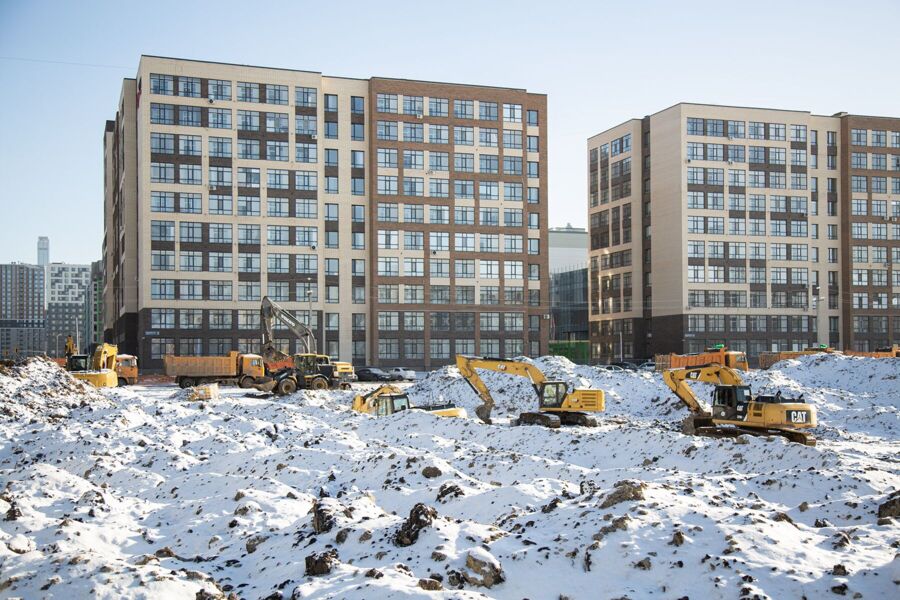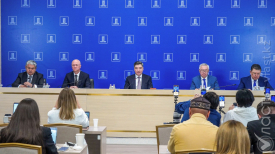- ВКонтакте
- РћРТвЂВВВВВВВВнокласснРСвЂВВВВВВВВРєРСвЂВВВВВВВВ
The territory of the Malyi Taldykol Lake system in Kazakhstan's capital has been actively developed since the 2010s, and especially aggressively since 2020. For over four years, the public has been fighting against the destruction of these urban lakes. The green light for the bulldozers and excavators was originally given by the Astana city government itself.
Last July, while acknowledging wrongdoing on part of the capital city administration regarding its zoning plans, the Supreme Court took the side of property developers and future residents of the houses that are being built on the territory of the lake.
How have the lakes changed and what plans does the local administration have for them?
"I have never seen so many people here before," said a Supreme Court usher when about 30 people attended the first hearing of the Malyi Taldykol case. Over the course of three sessions, the court heard the representatives of the city government, ministries, property developers, researchers, and the plaintiff: the NGO "Coalition of Corporate Lawyers "Aqiqat". The latter had asked to set up water conservation zones and strips across the entire area of the Malyi Taldykol.
Ruslan Urazaliyev, a specialist with the Association for the Conservation of Biodiversity in Kazakhstan and a member of the SOS.Taldykol NGO, says that he submitted a conservation concept for the lake system in 2012. Since then, however, the landscape of the lake area has changed significantly, as shown by satellite images. Aggressive real estate development drove a wedge into the once connected lake system, splitting it into several sections. In “Section 5”, which has already been filled up completely, the plan is to build a recreational park. In “Section 7” water protection areas will be established (see below).
On 21 July 2023, the Supreme Court closed the years-long trial and upheld the appeal court's order from December 2022. The court said that the local government had failed to establish water protection zones on the Malyi Taldykol lake system and this inaction was deemed illegal. Within three months, the court ordered the Astana administration to establish these zones in “Section 7” only, since “there is no longer water in the other sections”.
"The court battle has formally confirmed that, as activists and lawyers have been saying, the Astana city government was wrong but since businesses have already invested in many of the sections, and built some houses, the court sided with the Astana administration and the property developers," Shyngys Temir, a lawyer representing the Coalition of Corporate Lawyers "Aqiqat" told Vlast.
Temir claims that the court walked back from its initial plan to keep three sections for the lakes, and decided to only allocate one, so that construction companies would not lose the real estate licenses that the local government had already allocated. The lawyer and eco-activists consider this an injustice.
Will there Be an Eco-Park?
The area is now only developed as residential complexes, with little social infrastructure. “City Lake”, the name of one of these high-rises, refers to its location on the former lake. At a rally against the real estate development across the lake in March 2022, one of the residents of "City Lake" said that when she bought an apartment, the local government promised to improve the territory surrounding the lake, by building walking and bicycle paths, as well as organizing a yacht club.
In “Section 5”, the Sat-NS company built the residential block “Respublica”. Sat-NS is known to be owned by the brothers of Darkhan Satybaldy, the governor of the southern Turkestan region. The company's website stated that potential buyers would enjoy a neighborhood with "Astana's natural eco-park near Malyi Taldykol".
Across the road from Respublica, developers are building a new residential complex, called "Ecopark". Its name hints at the local government's plans to create an eco-park in “Section 5” of the lake.
On 4 December 2023, at a meeting with Zhenis Kassymbek, the mayor of Astana, civic activists of SOS.Taldykol and Menin Elim Dala pointed out the unlawfulness of the work without an approved project. According to the activists, during the meeting, the governor ordered the construction of the eco-park to stop, noting that there is no eco-park project. The property developer objected that the suspension would push the deadlines further.
At the meeting, the price for the eco-park was fixed to 5.3 billion tenge ($11.7 million). In February 2022, the government had said it would allocate just one billion tenge ($2.2 million) to finance the eco-park. Vlast asked about the increased budget for the project, but the Astana department of environmental protection ignored the question.
Two weeks later, at a briefing in the Central Communications Service, Kassymbek seemed to have walked back from his decision to stop work on the eco-park for the foreseeable future.
"We will continue the work on three of the sections. In ‘Section 5’, a recreational park will be built. We will start construction next year," Kassymbek told the press, noting it would take a maximum of two years to complete.
Bringing the Water Back
According to the department of environmental protection, construction works within the framework of the eco-park project will also increase the average depth of the lake area and preserve the water balance.
Kydyr Zhienali, the department specialist, told Vlast that the project "mainly involves landscaping and water restoration."
"It is necessary to restore water levels. It will be like a wild park, but inside there will be bicycle paths, paving stone pedestrian roads, a parking lot, a bridge, children's playgrounds, and sports grounds," Zhienalі added.
According to him, the water on the site "disappeared due to the development of the area, which blocked the paths of underground water". To get the water back, the plan is “to dig six or seven mini ponds in different parts of the area until the water comes back," and fills the entire site.
Today, “Section 5” is dotted with construction cranes, a common sight in this area of the city, once again confirming that construction is the main driver of the city's economy. The apocalyptic sights around the construction sites are only interrupted by a flock of sparrows, a feeble reminder of the wildlife that once thrived in this section of the lake system. And this is what “Section 5” looked like in 2021.
Unprotected Lakes
Despite court rulings in 2022 and 2023 in favor of the creation of water protection zones, construction work on "improvement and landscaping" of sections 7 and 9 has yet to start. We asked the Astana governor at the December briefing about the delay, but the question remained unanswered.
Sections 7 and 9 are now split by an extension of Uly Dala Street, which connects with Chingiz Aitmatov Street. Real estate company Ellington Hills is building a range of luxury cottages and townhouses there. The company promises a neighborhood with a lake, a landscaped promenade, and a shopping mall with a water park.
This will be a part of the project of a tourist area in the so-called “Astana - New City”, a special economic zone in the capital. The prime minister’s press service confirmed that the cost of developing the 333 hectares plot will amount to more than 1 trillion tenge ($2.2 billion) and the chosen investor is UAE company Ellington Properties Development. Two companies that the developer established in Kazakhstan applied last year to scrap the provision of the establishment of water protection zones in Section 6. The Court of Appeal’s decision last year ruled in favor and the company filled in the site and started construction.
Closed Hearings
Urazaliyev says that the Association for the Conservation of Biodiversity worked actively with four consecutive governors of Astana, proposing the creation of the capital's first urban nature park. However, everything changed under ex-governor Altai Kulginov, as the lake began to be filled in.
"We still firmly believe that this is the optimal idea for the development of natural ecosystems. We want to integrate the lake into the urban environment as much as possible, not aggressively develop the whole area," Urazaliyev said.
Despite citizen activism, their participation in the design of the eco-park remains limited. Urazaliyev noted that public hearings were held only for the previous version of the project.
"These public hearings were held as secretly as possible without public participation. As we were told, the announcements were placed on a bulletin board in the Yesil district administration, meaning you had to go there and look, in some newspapers that no one reads, and on the eco-portal. All three of these platforms are not the most visited. If you don't know where and what to look for, you won't find an announcement," Urazaliyev told Vlast.
The SOS.Taldykol public association plans to continue fighting for the preservation of the lakes and to initiate a public ecological examination of projects within the framework of the Environmental Code, through which they plan to widely disseminate information.
Поддержите журналистику, которой доверяют.
